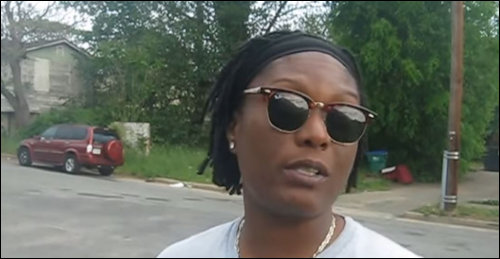
Zenobia Bey is CEO of Community 50/50, an organization dedicated to promoting “positive thinking” and “social skills” in Richmond inner-city youth. As a civic activist who works and lives in the community, she has a different take on the high dropout rate in Richmond Public Schools than what we hear from well-meaning white, middle-class politicians, journalists and pundits who pontificate about poverty from afar.
While the high school graduation rate has improved statewide since 2014, the graduation rate has declined from 84% to 75.4% for Richmond high school students. Richmond Public Schools have the worst dropout rate in the state. Clearly, the problem is related to the high incidence of poverty among Richmond school students. But poverty does not explain why the problem is getting worse — even as the Richmond School Board last spring suspended an attendance policy that would have put 400 students at risk of missing graduation.
Writes RVA Hub in an article about Richmond’s low graduation rate:
Whether it is because some students lack ambition or because they are dealing with community or family issues, Bey said that a negative culture around attending school has formed in the city.
According to the U.S. Department of Justice, for the first half of 2018, Richmond was Virginia’s most violent city with a rate of 247 violent crimes per 100,000 residents.
“How do you expect a kid to worry about school when they’re more concerned about whether they’re going to get shot — or if they’re an older sibling, making sure their younger siblings are going to school and have something to eat because their parents for whatever reason cannot support them,” Bey said.
Bey says this is where the community has failed Richmond youth. Chronic absenteeism has been a problem in RPS for years — and when adults let children skip school, norms begin to form.
“It’s a generational cycle of some norms that a lot of kids are seeing, and it is becoming OK not to go to school,” Bey said.
What’s the answer? Bey suggests offering interesting and relevant after-school programs, as well as internships and apprenticeships at local businesses. It is crucial to give young people a reason to engage in something positive, she says. If city schools offered resources unavailable at home or elsewhere in the community, children would be more likely to value the importance of school.
Maybe that’s the answer, maybe it’s not. Last year, the Communities in Schools program in Richmond enlisted 2,500 volunteers and 350 community partners to mobilize support for after-school programs and wrap-around social services. The programs sound similar to what Bey is advocating. Are they working?
I don’t know the answer, but I’ll just observe that Communities in Schools has been very active in Richmond schools during the same period in which the graduation rate was plummeting. While the program’s services might have made a difference for individual students — the 2018 annual report says that 61% of CIS students improved attendance and 82% improved behavior — it would appear that the nonprofit’s efforts are being swamped by powerful attitudes emanating from within the inner-city community.
If you’re digging for root causes of poverty and the high dropout rate that contributes to it, identify what is driving the change in inner-city norms.
(Hat tip: John Butcher)

Leave a Reply
You must be logged in to post a comment.